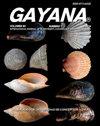Characterization and variability of the prokaryotic community in sediments from Salar de Lagunilla, northern Chile
IF 0.2
4区 生物学
Q4 ZOOLOGY
引用次数: 1
Abstract
Fluorescence in situ hybridization (FISH) with rRNA-targeted oligonucleotide probes was used to investigate the abundance of prokariotic community from the sediments of different sites and along a temporary-space scale from Salar de Lagunilla, a high-altitude athalassohaline wetland in the Chilean Altiplano. Six different taxonomic groups were studied: alpha, beta, gamma proteobacterias, sulfate-reducing of the delta subclass of Proteobacteria, Cytophaga-fl avobacteria and the domain Archaea. The analyses showed the Archaea domain and Cytophaga-fl avobacteria group (33.6 % 20.2 %, respectively) as the dominant group, whereas the groups with minor abundance corresponded to alpha and Beta-proteobacteria (10.7 15.5 %). The prokariotic communities in the sediments also developed differently, as shown by Fluorescence in situ hybridization (FISH) and by nonmetric multidimensional scaling analysis. Changes in prokariotic community composition were followed d uring three years, w here there was a difference in the abundance of the domain Archaea, during the dry season (March-August 2006), which demonstrated the existence of temporary differences, but not space. In addition, Canonical correspondence analysis revealed that the prokaryotic community composition could be infl uenced by some environmental factors, where important components of the ecosystem such as, limestone and carbon, could play a role in the distribution and composition of the prokaryotic community.智利北部拉古尼拉盐湖沉积物中原核生物群落的特征和变异
采用荧光原位杂交技术(FISH)和rrna靶向寡核苷酸探针,研究了智利Altiplano高海拔亚盐盐湿地Salar de Lagunilla不同地点和临时空间尺度沉积物中原核生物群落的丰度。研究了6个不同的分类类群:α, β, γ变形菌,δ亚类的硫酸盐还原变形菌,Cytophaga-fl avobacteria和域古细菌。结果表明,古菌结构域和Cytophaga-fl avobacteria群(分别为33.6% ~ 20.2%)为优势菌群,α和β -变形菌群(10.15.5%)为低丰度菌群。荧光原位杂交(Fluorescence in situ hybridization, FISH)和非度量多维尺度分析显示,沉积物中原细菌群落的发育也存在差异。在3年的时间里,原生菌群落组成发生了变化,其中,在旱季(2006年3 - 8月),域古菌的丰度存在差异,这表明存在暂时差异,而不是空间差异。此外,典型对应分析表明,原核生物群落的组成可能受到一些环境因子的影响,其中生态系统的重要组分如石灰岩和碳可能在原核生物群落的分布和组成中发挥作用。
本文章由计算机程序翻译,如有差异,请以英文原文为准。
求助全文
约1分钟内获得全文
求助全文
来源期刊

GAYANA
Agricultural and Biological Sciences-Aquatic Science
CiteScore
0.60
自引率
0.00%
发文量
5
期刊介绍:
GAYANA is a scientific journal published by Universidad de Concepción, Chile. It is the modern version of Gayana Oceanología and Gayana Zoología. Therefore its numeration starts at volume 63(1).
GAYANA covers all aspects of zoology and oceanographic research. It is structured in five sections, defined by subject or discipline: Ecology, Biodiversity and Taxonomy, Earth Sciences, Evolutionary, and Applied Biology and Environmental Biology. Each section is in charge of an editor who receives and manages the manuscripts sent for evaluation in close collaboration with the editorial board.
 求助内容:
求助内容: 应助结果提醒方式:
应助结果提醒方式:


